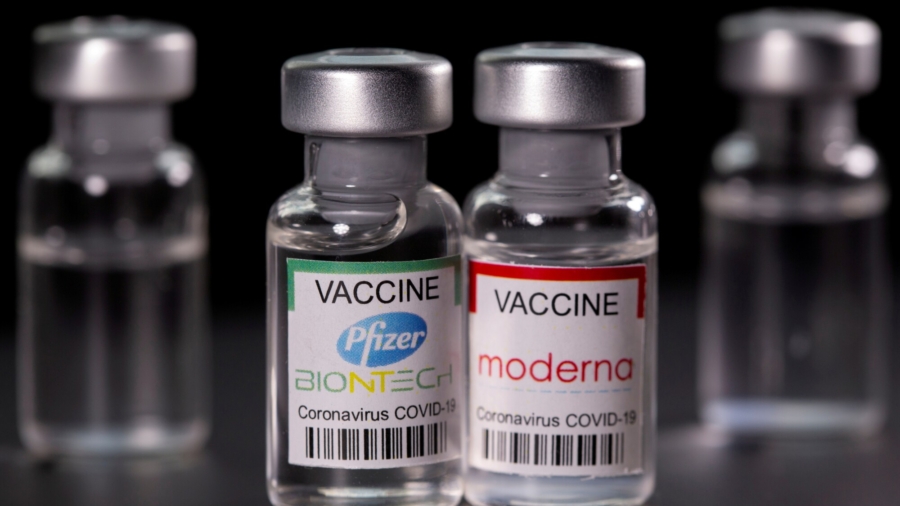Moderna and the Pfizer-BioNTech alliance could reap billions from COVID-19 booster shots in the coming years, in what analysts and investors say could be a market comparable to the $6 billion in annual sales for flu vaccines.
Pfizer, its German partner BioNTech, and Moderna have together locked in over $60 billion in sales of their respective COVID-19 vaccines through 2022, with the agreements covering initial doses and booster shots, according to Reuters.
Analysts cited by the outlet predict revenues of over $6.6 billion for the Pfizer-BioNTech alliance and $7.6 billion for Moderna, chiefly from booster shots. Over a longer-term horizon, they predict the market will eventually settle at around $5 billion or more in annual revenues as rival drugmakers enter the space.
Moderna did not immediately respond to a request for comment on booster shot sales projections, while a Pfizer spokesperson said the only forecasts the company is providing are 2021 projections for $33.5 billion in COVID-19 vaccine revenues.
Moderna President Stephen Hoge said in an interview last week that it is unclear what the market forces driving COVID-19 vaccine sales will be going forward, adding that, “at some point, this will become a more traditional market—we’ll look at what are the populations at risk, what value are we creating, and what are the number of products that serve that value. That will ultimately impact price.”
Pfizer executives said during the company’s second-quarter earnings call that they believe a third dose will be necessary 6 to 8 months after vaccination, and at regular intervals thereafter.
The vaccine makers have said evidence of waning antibody levels in fully vaccinated people after six months, along with an increasing rate of breakthrough infections in regions affected by the Delta variant, support the need for boosters.
It comes as U.S. regulators on Thursday authorized Pfizer-BioNTech’s and Moderna’s COVID-19 vaccine booster shots for certain vulnerable and immunocompromised people. The Food and Drug Administration’s (FDA) approval came in the form of an update to the existing emergency use authorizations for the two mRNA vaccines. Several other countries, including Israel and France, have similar recommendations on booster shots.
The FDA’s move was followed by a Friday decision by a key medical advisory panel to the Centers for Disease Control and Prevention (CDC), which unanimously voted to recommend the boosters to immunocompromised Americans. The approval of the Advisory Committee on Immunization Practices clears the way for a final nod by CDC, expected later Friday, which would allow for near-immediate rollout of the boosters.
White House COVID-19 advisor Anthony Fauci said in an interview Thursday that he believes it is “likely” and “inevitable” that everybody will need a COVID-19 vaccine booster shot.
“It’s likely that that will happen at some time in the future,” Fauci told CBS News when questioned on the topic.
In a separate interview with NBC News on Thursday, Fauci said that “inevitably, there will be a time when we’ll have to give boosts to the general population.”
It comes amid a surge of the Delta variant of the CCP (Chinese Communist Party) virus, the pathogen that causes COVID-19, which currently accounts for at least 80 percent of newly sequenced cases in the United States.
Biden administration officials first signaled last month that certain groups would need COVID-19 booster shots.
Isabel Van Brugen and Reuters contributed to this report.
From The Epoch Times


